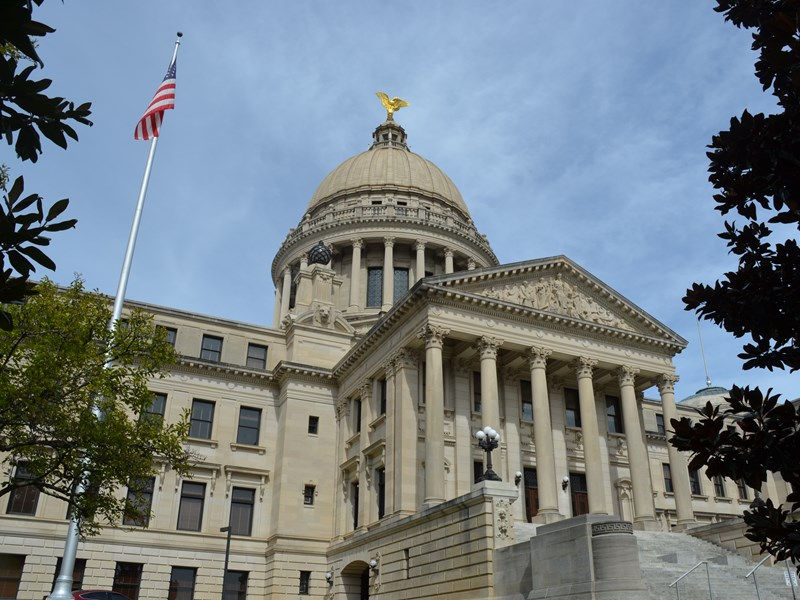Politics this Week: MS Ramps Up the War on Abortion, La. Gets New Black District
- Adam Lynch
- Jan 29, 2024
- 4 min read
Updated: Dec 10, 2024

Most Mississippi House leaders still oppose giving voters the power to create and alter state law without politicians. House Concurrent Resolution 11, which could replace the state’s ballot initiative that courts killed in 2021 while protecting the city of Madison from marijuana sellers, survived a lopsided House vote this week. Most Democrats opposed the vote, but the Republican super-majority pushed it through.
“That unborn child—that’s who we’re trying to protect,” House Constitution Chairman Price Wallace told reporters. However, voting trends suggest Wallace and his allies are mounting a personal crusade over the preference of Mississippi voters, who opposed making abortion illegal in a 2011 "personhood" ballot initiative.
"... Real democracy shouldn’t come with conditions.” —Rep. Robert Johnson, D-Natchez
GOP House leaders appear mindful of that 2011 vote. The resolution claims “the people reserve to themselves the right to exercise the legislative power of the state to propose new laws and to amend or repeal existing laws by initiative,” but it denies voters the right to “propose any new amendments … or modification(s) to the state constitution.” They may also not tweak the state’s Public Employees' Retirement System or redirect treasury funds. Voters are especially denied the right to “propose any new law or amend or repeal any existing law relating to abortion …”
“A resolution bringing back something as important as a ballot initiative should never have been watered down to an abortion issue,” said Rep. John Hines, D-Jackson. “They’re taking the right of people to have a voice when they see something wrong. That particular piece of legislation strips citizens of their right, of their opportunity to engage in the process, when they think we’ve gotten it wrong.”
Hines was unwilling to speculate whether Mississippi citizens would still support an initiative to fully restore abortion rights more than 10 years after the personhood vote, but he insisted they have the opportunity to choose.
Rep. Robert Johnson, D-Natchez, similarly said “real democracy shouldn’t come with conditions,” adding he didn’t think anything less than a clean bill would survive a vote in the Senate.
“Based on what [Lt. Gov. Delbert Hosemann] has said previously and what he’s said lately, I don’t think he would be in favor of anything that is not a clean ballot initiative,” Johnson said.
The House majority shot down Democrats’ attempt to empower the proposal and remove its anti-democratic element before its passage.
In addition to de-clawing a new ballot initiative, legislators are pondering a bill that prosecutes abortion supporters. Rep. Gene Newman, R-Pearl, submitted a bill that could hit people who publish abortion information online with a fine of no less than $500.

The legislation targets “any person who writes, prints, publishes, distributes” (or pays for the distribution of such) to be hit with a misdemeanor fine of up to $1,000 or six months imprisonment, or both. Offensive information includes when, where or how an abortion can be obtained in Mississippi or elsewhere. Methods of distribution include cards, pamphlets, billboards or web posts.
If a business or nonprofit violates the potential law, they could face felony charges of up to $20,000.00, and its employees could face three years of imprisonment, or both.
Laurie Bertram Roberts, CEO of the Mississippi Reproductive Freedom Fund, which funds out-of-state abortions for Mississippi women, vowed the legislation would not deter her work should it become law.
“We aren't going anywhere,” Roberts told BGX. “It is clear that anti-abortion politicians are scared of the people having knowledge.”
Meanwhile, voters got a brief whiff of real democracy in Louisiana, however. After more than two years wrangling with courts, white Louisiana legislators had to surrender a gerrymandered congressional map that violated Section 2 of the Voting Rights Act and diluted the state’s significant Black voting population. White people comprise only 60% of Louisiana’s population, but five of the state’s six congressional districts are majority, white thanks to the elaborate redistribution of Black voters across several white districts.
The court ordered the creation of a second majority-Black district, and the legislature finally got onboard with the decision this month. Congressman Troy A. Carter, who is Black, praised the decision.
“Louisiana did the right thing. Math prevailed,” Carter said. “It has been a tough fight to get a congressional map that fairly represents every Louisianian, specifically creating two districts that give African Americans equal representation. So many have worked tirelessly to make this historic moment happen—the NAACP, the Urban League, the Louisiana Legislative Black Caucus, and many others.”
Republicans in Arkansas and Louisiana are working to undermine groups like the NAACP, the Urban League, and the Louisiana Legislative Black Caucus with the help of several conservative, Trump-saturated courts, however. A ruling from the 8th U.S. Circuit Court of Appeals is already depriving Black voters in Arkansas of a fair legislative district map for 2024, and the GOP hopes the mechanics behind that decision can strip power from most of the South. Last November, the 8th Circuit dismissed a challenge against a racist Arkansas House map after holding that voters and civil rights groups like the NAACP cannot bring claims under Section 2. Now minority voters across seven states, including Arkansas, Iowa, Minnesota, Missouri, Nebraska, North Dakota, and South Dakota cannot use Section 2 to fight unfair discriminatory maps and anti-voting laws.
Republican officials in Louisiana are already asking the ultra-conservative 5th U.S. Circuit Court of Appeals to re-hear pro-voter decisions using the same “private right of action” language excluding private group suits in Arkansas.
_________________________
Adam Lynch is an editor and reporter. Send story tips and freelance pitches to alynch@loveblackgirls.org.


Comments